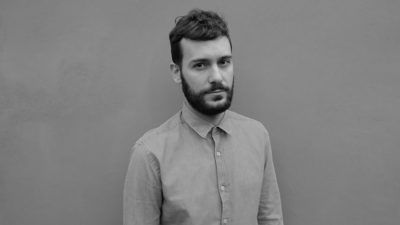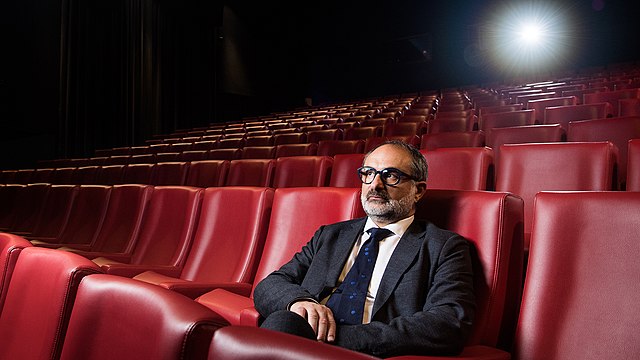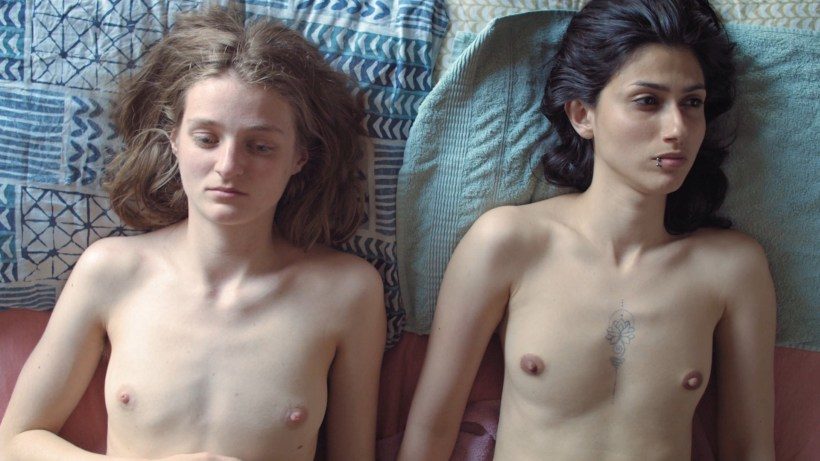
MADAR TAMAME ROOZ DOA MIKHANAD (Special Mention, Locarno Pardi di Domani, 2022) © Hoda Taheri
The Locarno Film Festival, one of the most important of all the international film festivals, has a tradition of supporting short films. Not only does it host competitions for national and international shorts, but also Shortsweek, which takes place online in February. When Giona Nazzaro took over as artistic director in 2021, he further strengthened this commitment. Together with Eddie Bertozzi, who is responsible for Pardi di Domani, the festival’s short film program, they launched a new competition for films by established directors: Corti d’autore. Shortfilm.de met them both shortly before this year’s edition to discuss their visions regarding short films and their efforts at integrating them into the overall ecosystem of the festival.
Frédéric Jaeger: It is said that a filmmaker’s second film is often their most personal. Is this also true of your second festival edition? Does the program say a lot about you and your worldview?
Eddie Bertozzi, Head of Pardi di domani Selection Committee and Advisor for the Competitive sections © Locarno Film Festival
Eddie Bertozzi: It does. We were very happy with the program we put together last year, which gave us a lot of confidence when we began working on this year’s edition. Though it also meant that we were under additional pressure to maintain, or even surpass, the same level of quality. It’s for others to judge, but we’re very proud of the results. And I do believe that through the selection we reveal ourselves as programmers. Among the team, we often discuss how the program reflects not only our cinematic interests, but also our personal values. We present things that we consider urgent and important, that we need in order to challenge ourselves, or that we want to explore further by seeing them on the big screen together with other people. In that sense, our work is very political.
Frédéric: How about you Giona, would you invite your therapist to see your program at the festival?
Giona A. Nazzaro, Artistic Director © Locarno Film Festival
Giona: I never had a therapist, my roots are too working class. I’m very happy with the work of the selection committee in charge of programming the short films. They have found a special form of collaboration under Eddie’s leadership. The results they achieved last year speak for themselves. And last but not least, it was impressive to see how well the films were received by the international short film festivals and by the community. Shorts are incredibly important in Locarno, because they connect to all the other parts of our festival: the Academies, the Open Doors program, the newly established Residency, and so on. In that sense, short films really are a cornerstone of the whole festival edifice. And I’m very pleased that it’s also perceived that way from the outside.
Frédéric: What is the link between short films and the festival’s industry activities?
Giona: Locarno puts a lot of emphasis on education and training. Through the Industry Academy, the Filmmakers Academy, the Critics Academy, as well as other programs, we help teenagers and young adults who want to enter the film industry take their first steps. At Open Doors, we work together with filmmakers from different regions of the world, assisting them in developing their vision and their approach to cinema. With Locarno Kids, we promote the communication of audiovisual media to younger people. In all programs, short films play a big role, often they’re the starting point.
Eddie: We offer a holistic experience to the film teams who come show their short films in Locarno. We don’t want them to just present their film and then leave. I tell directors that attending Locarno is less about their current film and more about their next one. They participate in this festival alongside the industry, cinephiles and critics. We strive to create connections between them. That is crucial for us. And it’s also important for us as programmers: Locarno is a festival dedicated to discoveries. In all the feature film sections, we show an exceptional number of debuts. In this respect, it is especially important for us to find new talents and create a network that allows us to follow their next steps.
Frédéric: The festival also hosts events for the industry, like talks and roundtables. Do some of these additional programs have a particular focus on short films?
Eddie: Locarno doesn’t have a market like the Berlinale or Cannes, but it does have a number of events for the industry. Last year we realized that we needed more programs or activities dedicated specifically to the makers of short films. We launched a cooperation with Unifrance in order to allow not only filmmakers to come to Locarno, but also parts of the French industry. Additionally, we offer activities that support and connect directors and producers who are looking for help or funding for their next film. And we are discussing ways to expand these services in the coming years.
Frédéric: Locarno is not a specialized festival, but a generalist festival with many different sections. Do you have to achieve a balance for short films to receive attention vis-à-vis the other programs?
Giona: Not really, because we believe in short films. This year, for example, we are showing the “Postcards from the Future”, shorts specially produced for the festival’s anniversary. Then we have “Stamps”, which are even shorter films that were produced through our cooperation with Swiss Post and commissioned from a young group of very enthusiastic Swiss filmmakers coordinated by Cyril Schäublin. Short films are part of Locarno’s DNA.
Eddie: There is a great short film tradition in Locarno, for which we have to thank our predecessors. Locarno is indeed generalist, but Pardi di Domani, the short film program, doesn’t take place on the margins, it’s an integral part of the whole that presents a new selection of shorts every day.
Among the team we also discussed this word that you use: generalist. We wanted to give our own interpretation: we have a diverse audience, with different interests, and our program should reflect this. We select 40 shorts and we want them to represent the whole spectrum, from animation to documentaries, from more experimental approaches to more narrative forms. This is also an interesting exercise for us as programmers. Because everyone of course has their own taste, their own cinephilia, but we don’t want to get stuck in tastes and prejudices. That’s also why it’s important to work as a team. The short film committee is composed of four people, meaning four heads and hearts. The discussions that the films trigger between us are very inspiring, and that’s what generalist should mean.
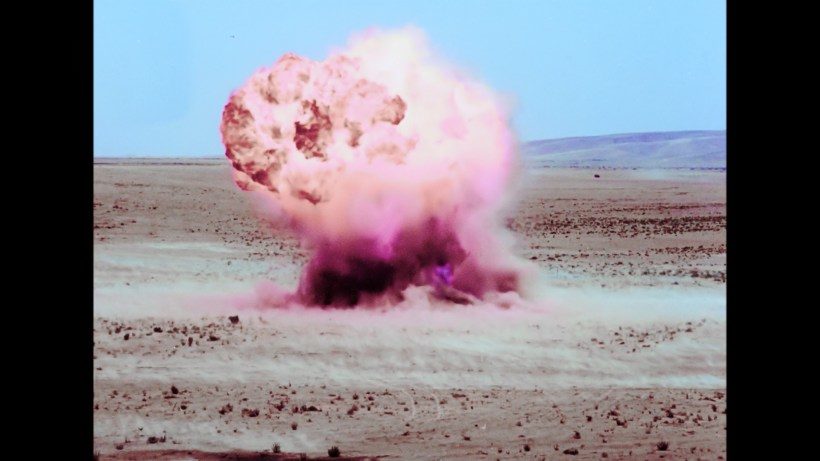
PARADISO XXXI (Palestine/ Germany, 2022), in Competition Pardi di domani: Concorso Corti d’autore © Kamal Aljafari
Frédéric: Last year you introduced a new section within the Pardi di Domani program, Corti d’autore. What was the motivation behind this choice?
Giona: The idea was very simple: we no longer wanted to seek out short films by exciting directors, only to then struggle to find a place for them in our schedule. We also wanted to highlight the fact that there are many established filmmakers who find it refreshing to experiment with the short form.
Eddie: It was also important for us to fight a prejudice. Of course, it’s true that shorts are a training ground for young talent, and there’s nothing wrong with that. But there’s artists who are fully dedicated to the short form. Sometimes established feature directors have a story in mind that is suitable for a short, so they realize it that way. Such films often end up in a neglected out-of-competition slot somewhere at the end of major festivals and hardly anyone sees them. That’s of course very frustrating. Part of the success of Corti d’autore has been the extremely positive reception on behalf of the filmmakers, who feel that we value their work.
Frédéric: In contrast to many other festivals, you combine short films from different competitions into joint screenings. What is the idea behind this strategy?
Eddie: Pardi di Domani is made up of three competitions: in addition to Corti d’autore, we have two newcomer competitions – one international and one Swiss – that are dedicated to filmmakers who have yet to make a feature film. We didn’t want to create program ghettos. For us it makes sense to encourage dialogue between films. Our programs are not organized thematically, but we find common traits linking different films, be it a feeling or an idea.
Frédéric: Giona, when you spoke about programming last year, you stressed the importance of having fun at a festival. To what extent is that true for shorts as well, and how do you impart this enjoyment of cinema through the short film program?
Giona: Having fun with short films is perhaps even easier than with features, because the energy that goes into making shorts is more free. It’s the same old story: questions about keeping a big budget in check, about being loyal to a commissioned script, and so on. Whereas short films are a declaration of intent by emerging filmmakers and the pleasure that went into the work is clearly visible.
The selection of Pardi di Domani is a particularly fun and fascinating journey. The different forms, energies, perspectives, stories, approaches… these all create an exceptionally generous space of possibility. When people talk about the end of cinema, I’m tempted to think they’ve never encountered the joyful pleasures that overwhelm you while watching the selection of Pardi di Domani.
In any case, I couldn’t imagine doing this work if it didn’t include fun. For me, fun is the key factor in terms of releasing creative energies. People who have pleasure in their work feel accepted and respected. That’s why I believe that it belongs together.
Frédéric: Short films are ubiquitous, especially if all the short moving image formats on the Internet can be considered as shorts. What’s your take on the current status of short films?
Eddie: The transformations of the film market have helped increase the visibility of short films. All the major streaming platforms include a selection of shorts in their program. That’s something new, because we’re not used to seeing short films in the cinema these days. That’s why I feel very positive about the current developments.
Giona: Cinema was born short, one would pay a nickel to watch a short film reel at the fair. When we talk, we often focus on the things that surround us. Although I don’t use TikTok, I hear that there is a lot of creativity there as well. I accept the fact that people starting out as filmmakers today may not have seen a film by Godard – just to cite a name – but still their familiarity with film language is so sharp and deep that one can speak of the emergence of a new form of cinephilia, or rather, image-philia.
Eddie considers it a badge of honor that last year, at the premiere of “First Time”, someone shouted, “Cinema is dead!” This anecdote proves that films are still capable of touching a nerve, and as long as that keeps happening, it’s a very good sign. “First Time” is a film that, as we say in our circles, has gone around the world twice.
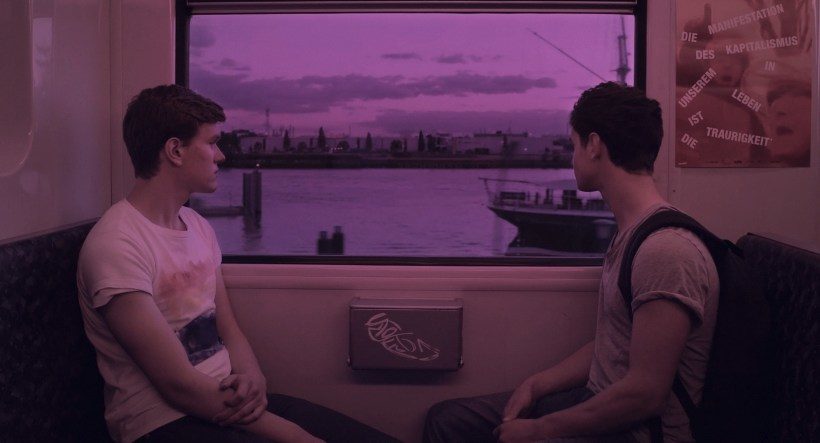
FIRST TIME [The Time for All but Sunset – VIOLET] (Special Mention Locarno Pardi di Domani, 2021) © Nicolaas Schmidt
Eddie: It’s a joke among the team that one day we should introduce a German competition in Pardi di Domani because we receive so many outstanding submissions from Germany. It’s true that German short films are very strong and have huge range, from strictly narrative to very experimental forms. As such, Germany is one of the most interesting regions for shorts.
Frédéric: Giona, do you think German features could learn something from German shorts?
Giona: I’m not in a position to answer this question. If you look at the films we invite in our feature-length competitions, our position is very clear. It’s obviously a big cultural complex with many layers that need to be taken into account. But it’s evident that something is happening between the short and the long films. I can’t say what it is, but I can see the results.
see also Reflecting Diversity: German Shorts Presented at the Locarno Film Festival
